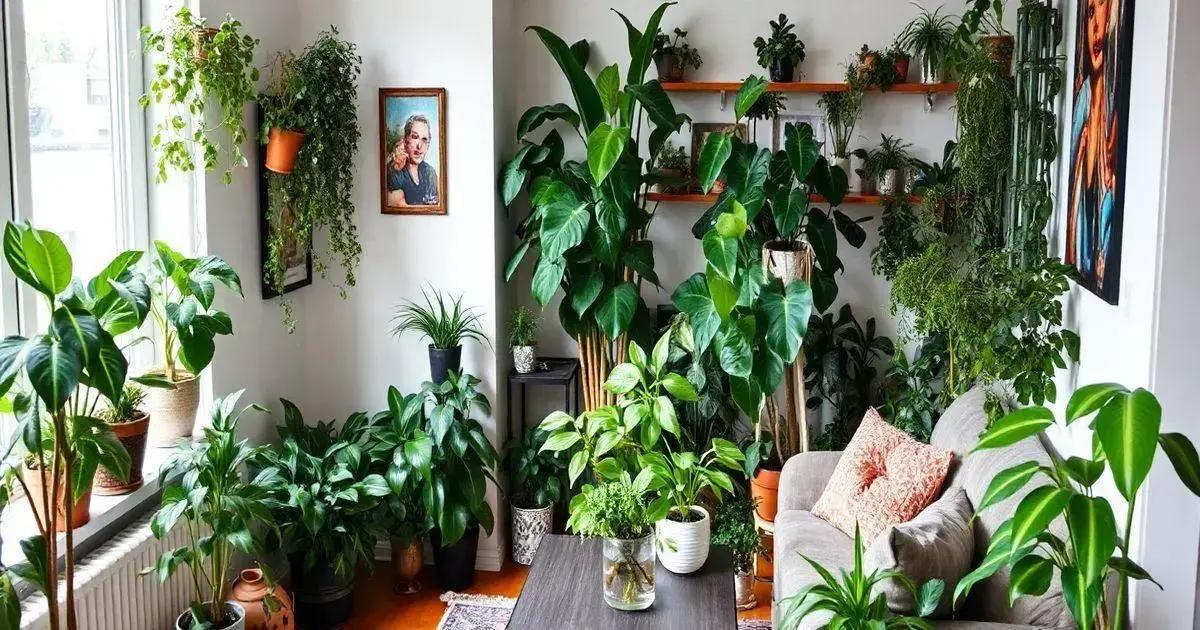
For apartment living, the best indoor plants include snake plants, pothos, and peace lilies. These plants thrive in low-light conditions, require minimal maintenance, and can enhance air quality, making them perfect choices for small spaces.
Plants for apartments bring life to your living area, making even the smallest spaces feel vibrant and welcoming. If you’re living in an urban apartment, adding greenery can lead to a healthier and happier environment. In this article, we’ll explore various plants for apartments, from low-light options to hanging varieties, ensuring that you find the perfect fit for your lifestyle.
Top 10 Plants for Apartments
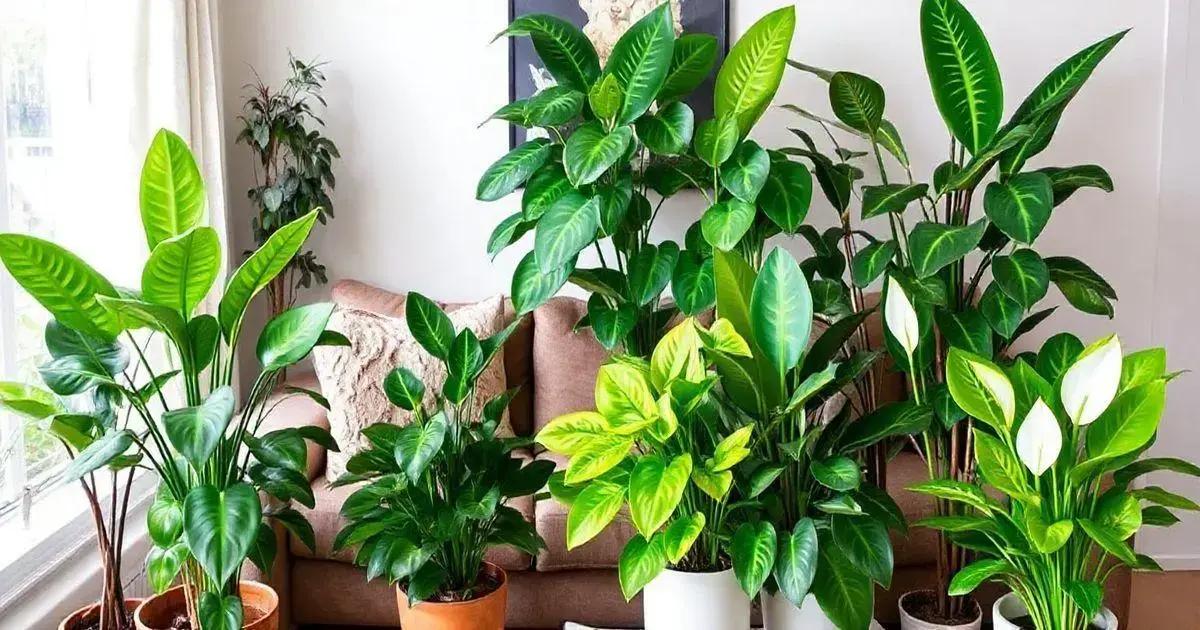
When it comes to plants for apartments, selecting the right species can make all the difference. Here are the top 10 plants that thrive in compact spaces, ensuring your apartment stays lively and beautiful.
1. Snake Plant (Sansevieria)
This hardy plant is nearly indestructible and can survive in low light. It purifies the air and needs minimal care.
2. Pothos
Pothos is a fast-growing vine that can adapt to various light conditions. Its trailing vines look great in hanging pots.
3. ZZ Plant (Zamioculcas zamiifolia)
The ZZ plant is perfect for those without a green thumb. It requires very little water and grows well in low light.
4. Spider Plant
Known for its air-purifying qualities, the spider plant is both pet-friendly and easy to care for, producing adorable baby plants.
5. Peace Lily (Spathiphyllum)
This elegant plant blooms beautiful white flowers and can thrive in low light, making it a great choice for any apartment.
6. Rubber Plant (Ficus elastica)
With its glossy leaves, the rubber plant not only adds style but also helps to purify the air.
7. Cast Iron Plant (Aspidistra elatior)
As its name suggests, the cast iron plant is incredibly resilient. It’s perfect for forgetful owners who may forget to water!
8. Boston Fern
This lush fern prefers humidity and indirect light. It’s excellent for adding a touch of nature to any corner.
9. Chinese Evergreen (Aglaonema)
Beautiful and hardy, Chinese evergreens can tolerate low light and are perfect for beginner plant parents.
10. Aloe Vera
Aloe vera is not only a low-maintenance option but also serves medicinal purposes, making it both practical and pretty.
Each of these plants for apartments offers unique benefits, adding beauty and improving air quality. So, consider incorporating a few into your space!
Low-Light Plants for Small Spaces
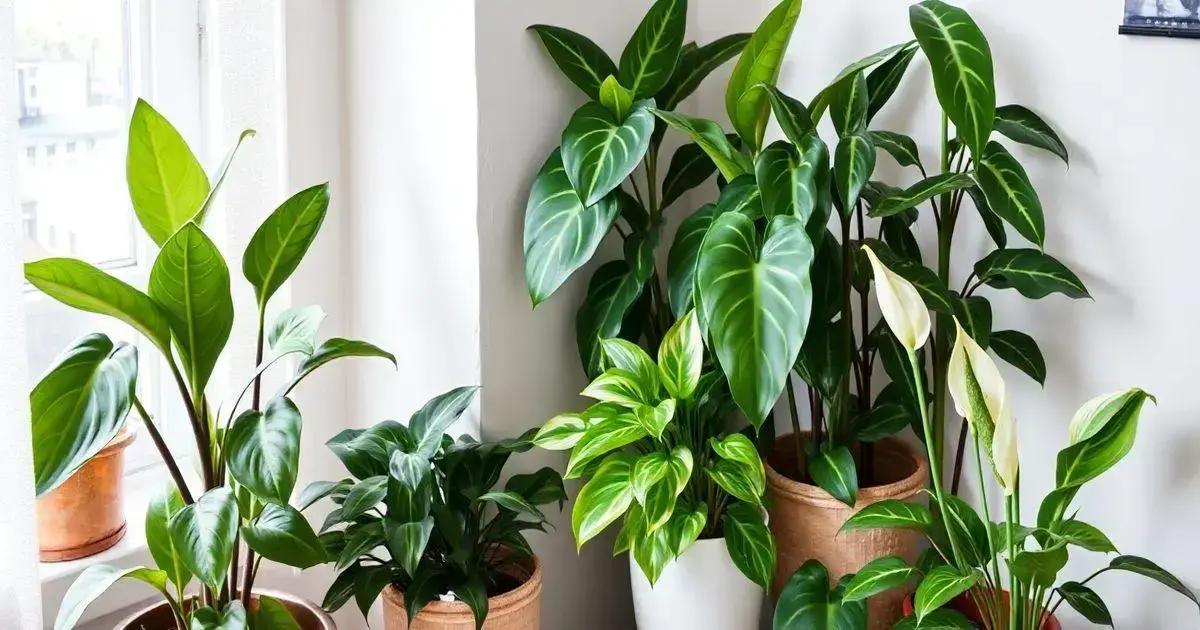
For those living in apartments with limited light, choosing the right plants can enhance your space beautifully. Here are some low-light plants perfect for small spaces.
1. Snake Plant
The snake plant is a great option for low-light areas. It survives on infrequent watering and thrives even in indirect sunlight.
2. ZZ Plant
This resilient plant can tolerate neglect and grows well in dim lighting. Its dark green, waxy leaves make it a stylish choice.
3. Pothos
Pothos adapts to low light easily. Its trailing vines can be placed in hanging pots or on shelves for added greenery.
4. Peace Lily
The peace lily not only thrives in low light but also blooms lovely white flowers. It’s perfect for brightening up dark corners.
5. Cast Iron Plant
True to its name, the cast iron plant is nearly indestructible. It can handle low light and irregular watering without any issues.
6. Philodendron
Philodendrons are versatile plants that do well in low-light conditions. They come in various shapes, adding a touch of style.
7. Spider Plant
Spider plants are known for their air-purifying abilities and can thrive in partial shade. Their playful leaves create a lively atmosphere.
8. Chinese Evergreen
This stunning plant can adapt to various light levels, thriving in shade while adding a splash of color with its patterned leaves.
These low-light plants are ideal for anyone looking to add greenery to their apartments without the worry of needing bright sunlight to thrive!
Care Tips for Apartment Plants
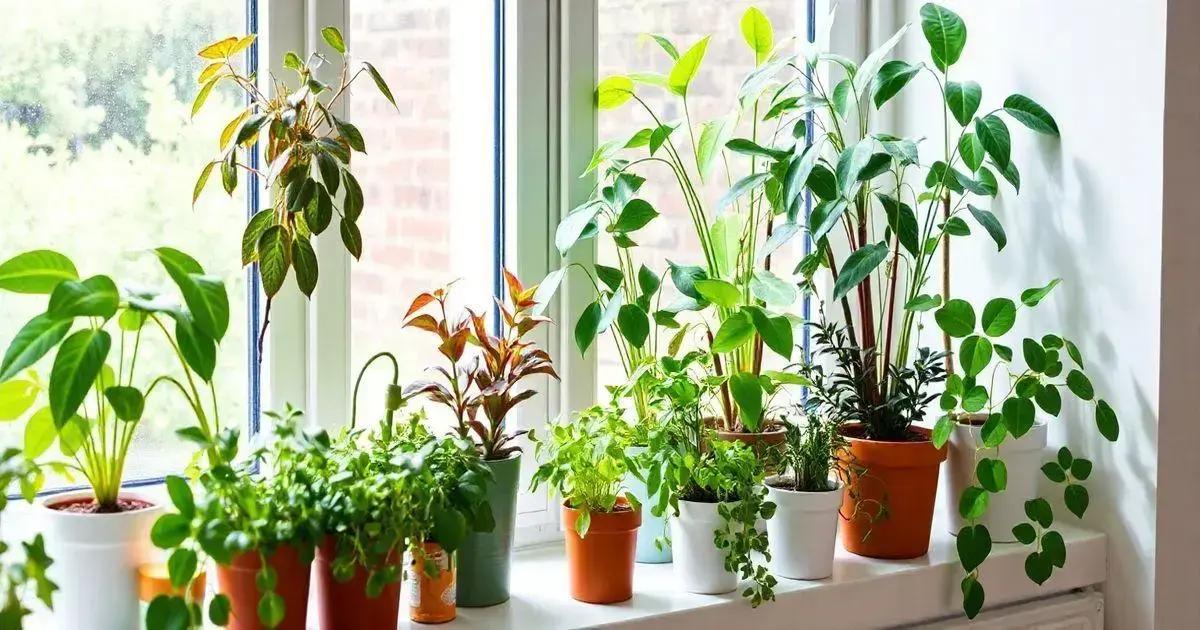
Caring for plants in an apartment can seem challenging, but with the right tips, you can keep your greenery thriving. Here are essential care tips for apartment plants to help you succeed.
1. Understand Light Requirements
Each plant has unique light needs. Make sure to place your plants in the right spots based on their light requirements, whether it’s low, medium, or bright light.
2. Watering Wisely
Overwatering is a common issue. Check the top inch of the soil; if it feels dry, it’s time to water. Always ensure pots have drainage holes.
3. Humidity Matters
Indoor air can be dry, especially in winter. Group plants together or use a humidifier to create a balanced humidity level.
4. Fertilize Regularly
Feed your plants with a balanced, water-soluble fertilizer during the growing season (spring and summer) to promote healthy growth.
5. Prune and Clean
Regularly prune dead or yellowing leaves to keep plants healthy. Dust can build up on leaves, so wipe them clean to allow better light absorption.
6. Monitor for Pests
Check your plants frequently for pests like spider mites or aphids. Use insecticidal soap or neem oil if you notice any infestations.
7. Repot When Necessary
As your plants grow, they may outgrow their pots. Repot them into a slightly larger container when roots start to come out of the drainage holes.
8. Rotate Plants
To ensure even growth, rotate your plants occasionally. This prevents them from leaning towards the light source and promotes balanced growth.
Air-Purifying Plants for Home
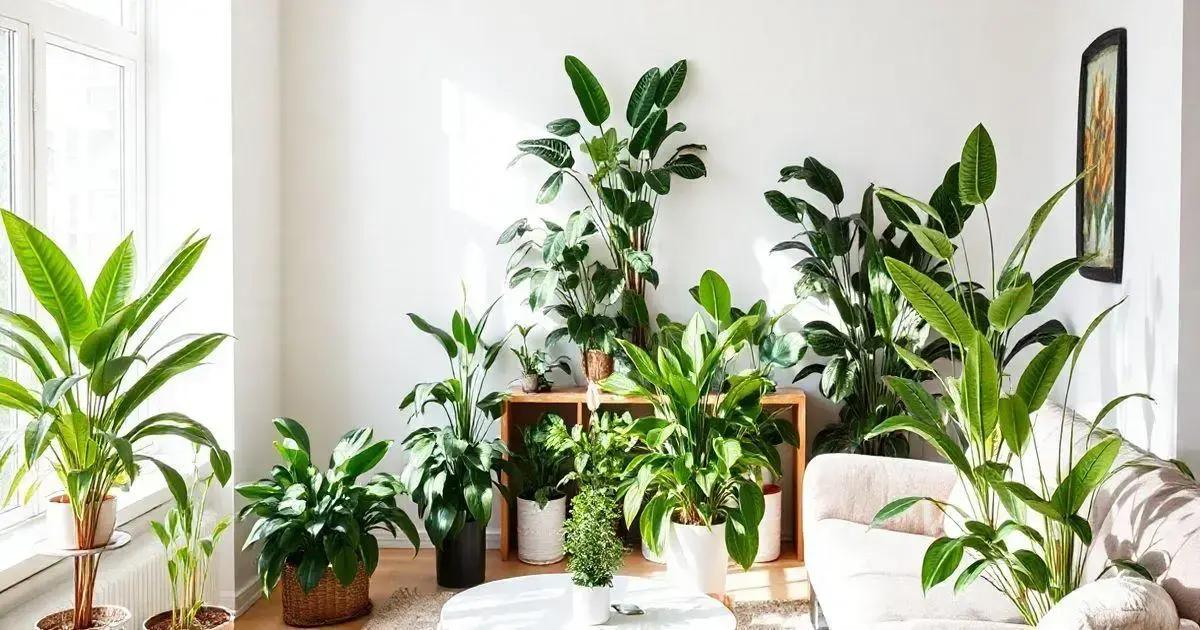
Choosing air-purifying plants for your home can significantly enhance your indoor air quality. These plants not only beautify your space but also help filter toxins from the air. Here are some excellent options to consider:
1. Spider Plant
The spider plant is easy to grow and can remove formaldehyde and xylene from the air. Its unique arching leaves make it an attractive addition.
2. Peace Lily
This lovely plant blooms white flowers and is great at filtering harmful substances like ammonia and benzene. It thrives in low light, making it perfect for apartments.
3. Snake Plant
Snake plants release oxygen at night, helping improve air quality while you sleep. They are also very low-maintenance, needing minimal water.
4. Bamboo Palm
With its lush green appearance, the bamboo palm is excellent for filtering out formaldehyde and benzene. It enjoys bright, indirect sunlight.
5. Areca Palm
This plant is known for its air-purifying abilities and adds humidity to your home, making it a great choice for dry environments.
6. Aloe Vera
Aloe vera is not just a healing plant. It also helps remove formaldehyde and benzene and releases oxygen, making your space more breathable.
7. Boston Fern
Boston ferns are excellent at removing formaldehyde and other harmful chemicals. They prefer high humidity and indirect light.
8. Rubber Plant
This hardy plant can remove toxins like formaldehyde while also being a striking decorative element in any room.
Incorporating these air-purifying plants into your living space is a simple way to create a healthier home environment while enjoying the beauty of nature.
Small Cacti and Succulents
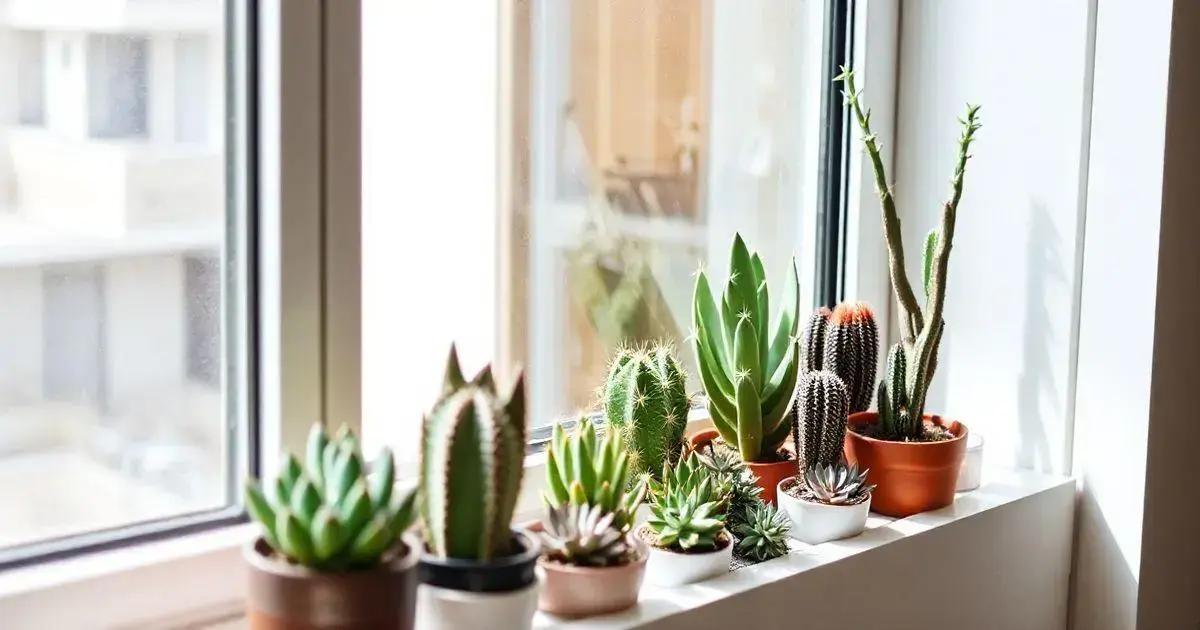
Small cacti and succulents are perfect plants for apartment living. They are low-maintenance, add charm, and require limited space. Here are some great choices to consider:
1. Echeveria
Echeveria is a popular succulent with rosette-shaped leaves. They come in various colors and are perfect for adding a pop of color to your space.
2. Haworthia
This low-growing succulent is characterized by its thick, fleshy leaves. It requires minimal water and thrives in indirect light.
3. Barrel Cactus
The barrel cactus is round and compact, making it great for small spaces. It enjoys bright light and blooms beautiful flowers in the right conditions.
4. Jelly Bean Plant (Sedum rubrotinctum)
This succulent has unique, jelly bean-shaped leaves that come in vibrant colors. It’s great for hanging planters or small pots.
5. Christmas Cactus
Unlike typical cacti, the Christmas cactus has flat stems and can bloom during the holidays. It prefers bright, indirect sunlight.
6. Zebra Plant (Haworthia fasciata)
The zebra plant features striking stripes on its leaves. This small succulent is perfect for desktops and windowsills.
7. Panda Plant (Kalanchoe tomentosa)
With its fuzzy leaves and unique appearance, the panda plant is a fun addition. It thrives in bright light and needs minimal watering.
8. Dwarf Pomegranate (Punica granatum ‘Nana’)
This compact plant produces small fruits and beautiful flowers. It prefers full sun and can be grown indoors or outdoors.
These small cacti and succulents make excellent choices for anyone looking to add greenery to their apartments without taking up too much space or requiring extensive care.
Hanging Plants for Vertical Spaces
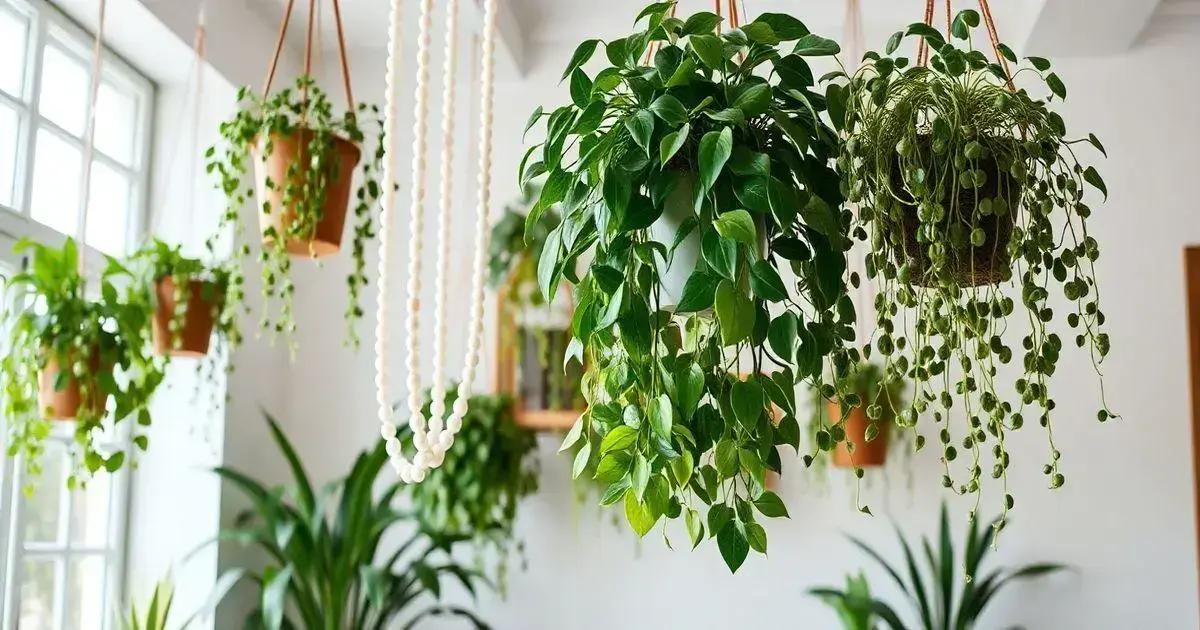
Hanging plants are a fantastic way to utilize vertical space in your apartment while adding a touch of elegance. Here are some great options for hanging plants for vertical spaces:
1. Pothos
Pothos is a popular choice for hanging planters. Its long, trailing vines can grow several feet long and thrive in various lighting conditions.
2. String of Pearls
This succulent features succulent, bead-like leaves that spill gracefully over the edges of pots. It needs bright light and minimal watering.
3. Spider Plant
Spider plants produce long arching leaves that can easily hang down from a shelf or planter. They are also known for their air-purifying abilities.
4. Boston Fern
This lush green fern thrives in humidity and prefers bright, indirect light. Its feathery fronds look stunning in hanging baskets.
5. Hoya (Wax Plant)
With its waxy leaves and unique flowers, the Hoya is a beautiful hanging plant that prefers bright, indirect sunlight and low humidity.
6. English Ivy
English Ivy is a classic hanging plant that is easy to grow. Its trailing vines can create a stunning focal point in any room.
7. Tradescantia (Wandering Jew)
This colorful plant features variegated leaves and can tolerate low light. Its fast growth makes it an excellent choice for hanging baskets.
8. Coleus
Coleus plants are known for their vibrant foliage. They flourish indoors, especially in hanging planters where their colors can stand out.
Incorporating these hanging plants into your apartment will not only save space but also create a cozy, green environment.
Herbs that Thrive Indoors
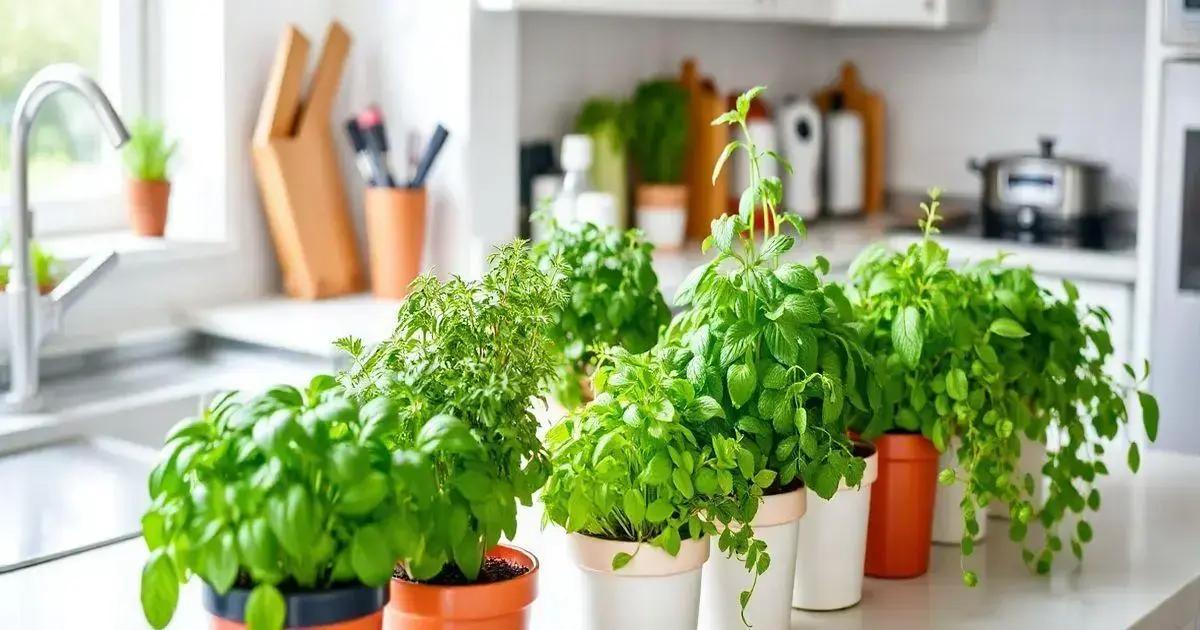
Growing herbs indoors is easy and rewarding, whether you’re an experienced gardener or a beginner. Here are some herbs that thrive indoors and add fresh flavors to your dishes:
1. Basil
Basil is a popular herb that loves warmth and bright light. It requires about 6-8 hours of sunlight daily and can elevate many dishes with its aromatic flavor.
2. Parsley
Parsley can grow well in small pots and prefers bright, indirect light. It’s versatile for cooking and garnishing various meals.
3. Thyme
This hardy herb needs little water and thrives in bright light. Thyme is perfect for adding flavor to soups, stews, and roasted meats.
4. Chives
Chives are a member of the onion family and can add a mild onion flavor to dishes. They grow well in small pots and prefer bright light.
5. Mint
Mint is a fast-growing herb that loves bright light. It can be invasive, so it’s best to keep it in a pot to control its growth.
6. Oregano
Oregano does well indoors, needing plenty of sunlight. It’s a staple herb in Italian cooking and can easily be dried for later use.
7. Rosemary
Rosemary is a woody herb that prefers a sunny spot and well-draining soil. Its strong flavor makes it a favored addition to meats and potatoes.
8. Cilantro
Cilantro grows quickly and thrives in cooler temperatures with moderate light. It’s perfect for salsas and garnishing Asian dishes.
By incorporating these herbs that thrive indoors, you can enjoy fresh flavors in your cooking while also adding greenery to your living space.
Best Pots and Planters for Apartments
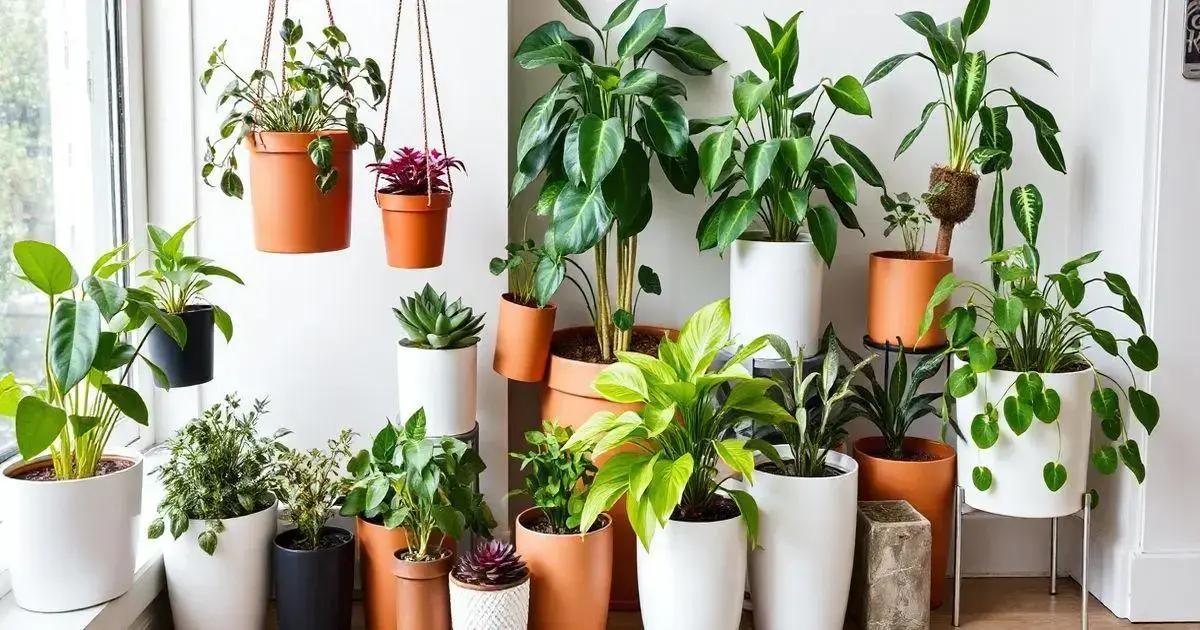
When living in an apartment, choosing the right pots and planters is crucial for both style and plant health. Here are some of the best pots and planters for apartments:
1. Lightweight Planters
Lightweight materials like plastic or resin are ideal for apartments. They are easy to move and come in various designs and colors.
2. Self-Watering Pots
Self-watering pots are great for busy individuals. They provide a consistent moisture level, helping your plants thrive without daily watering.
3. Hanging Baskets
Perfect for maximizing vertical space, hanging baskets can add greenery to your walls or ceiling. They are stylish and save precious floor space.
4. Wall-Mounted Planters
Wall-mounted planters create a stunning display and save space. They can be used indoors or outdoors for a unique touch.
5. Terracotta Pots
Terracotta pots are classic and breathable. They are great for plants that prefer drier soil but can be heavier when filled with soil.
6. Decorative Bowls
Decorative bowls can serve as modern planters, adding style to your decor. Make sure they have drainage holes to keep plants healthy.
7. Multi-Tiered Plant Stands
Multi-tiered plant stands help showcase various plants in your apartment. They add height and dimension to your space without taking up too much width.
8. Recycled Planters
Consider using recycled materials like glass jars or wooden crates. They offer a unique look and are eco-friendly.
Choosing the right pots and planters can enhance your apartment’s aesthetics while providing the ideal environment for your plants.
Discover the Perfect Plants for Your Apartment
Embracing greenery in your apartment can greatly enhance your living conditions while adding beauty and serenity to your space. From air-purifying plants that improve indoor air quality to hanging plants that maximize vertical space, the right choices can transform any apartment into a vibrant oasis.
By selecting suitable plants and utilizing clever pots and planters, you can create a unique environment that reflects your style and improves your quality of life. Remember to consider each plant’s specific care needs to ensure they thrive in your indoor space.
Don’t miss out on the joy of nurturing plants; they bring not only visual appeal but also a sense of tranquility and satisfaction to your home. With the right plants, you can truly make your apartment feel like a personal sanctuary.
FAQ – Frequently Asked Questions About Indoor Plants for Apartments
What are the best indoor plants for apartments?
Some of the best indoor plants for apartments include snake plants, pothos, peace lilies, and small cacti and succulents.
How do I care for low-light plants?
Low-light plants like pothos and ZZ plants require minimal sunlight. Water them only when the top inch of soil is dry.
What are air-purifying plants?
Air-purifying plants are those that can remove toxins from the air. Examples include spider plants, peace lilies, and rubber plants.
Can I grow herbs indoors?
Yes, many herbs like basil, parsley, and cilantro thrive indoors, provided they get enough sunlight and care.
What kind of pots are best for indoor plants?
Lightweight, self-watering, and decorative pots are ideal for indoor plants, as they make care easier and enhance aesthetics.
How often should I water my indoor plants?
Watering frequency depends on the plant type and pot size, but a good rule is to check the soil moisture and water when the top inch is dry.
About the Author




0 Comments